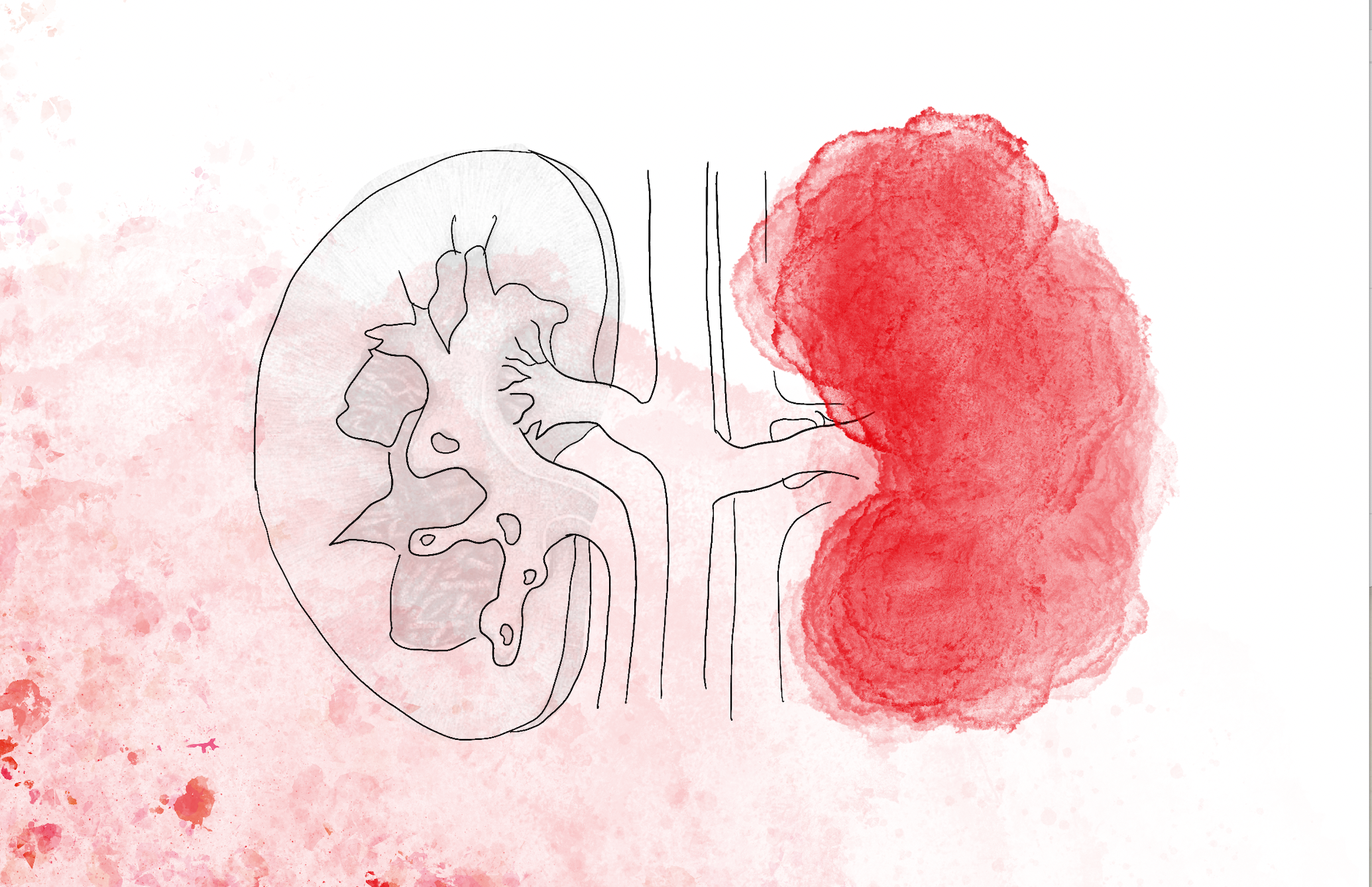If you are interested in prostate cancer you can also read:
A non-invasive prostate cancer combination test has been shown to have a positive predictive value of 93%*, meaning that out of 100 patients testing positive for prostate cancer 93 will truly have the condition. The study, published in the journal Cancers, 6 February 2023, shows that combining the standard prostate specific antigen (PSA) test with readouts of three-dimensional genomics significantly reduces the number of false positives compared to standard PSA testing alone.
“For the first time our study demonstrates that combining epigenetic testing with the already well established PSA test allows for a much more accurate diagnosis of prostate cancer,” first author Dmitry Pshezhetskiy told Cancerworld. “The new test has the potential to reduce the number of unnecessary biopsies and MRIs, which would both prevent anxiety and complications, and also deliver huge cost savings to health services.”
Although prostate cancer affects one out of six men at some time during their life, currently there is no accepted screening programme. The widely used blood-based readout of the PSA test, which measures levels of a glycoprotein produced by the epithelial cells in the prostate, is used to indicate the need for further investigations. At the threshold of 3.0 ng/mL the PSA test has a sensitivity (the ability to correctly identify patients with prostate cancer) of 35% and specificity (the ability to correctly identify patients without disease) of 93% for detecting any prostate cancer. As a result the PSA test cannot differentiate between early-stage invasive cancers and latent, non-lethal tumours that would have remained asymptomatic during a man’s lifetime, which results in men being exposed to numerous unnecessary biopsies. “The difficulty with the PSA test is that the PSA protein is produced by healthy prostate tissue and isn’t cancer-specific. As well as cancer, raised PSA levels can be caused by infection, inflammation, benign enlargement and even bicycle cycling,” explains Pshezhetskiy, from the University of East Anglia Medical School, Norwich, UK.
However, men who test positive for PSA are automatically referred for MRI and possibly biopsy – by no means a trivial procedure. “Biopsies involve sticking 12 to 24 needles in the perineum and ‘fishing’ for cancer. The procedure can lead to multiple complications including pain, bleeding and infection,” says Pshezhetskiy. A study in the New England Journal of Medicine showed that only around one third of men who have a prostate biopsy due to elevated PSA level are found to have prostate cancer. It is widely accepted that prostate cancer screening would be more beneficial if screening tests became more accurate.
How the Prostate Screening EpiSwitch® test works
With the advent of epigenetic research, it has become evident that epigenetic modifications, like aberrant DNA methylation and histone acetylation, can be related to the onset of different cancers. The Prostate Screening EpiSwitch (PSE) test, developed by Oxford Biodynamics plc, in the UK, has been designed to identify abnormal three-dimensional chromatin conformations, which are chromosome loops enhancing or suppressing gene expression in areas where one part of DNA touches another.
The three-dimensional conformations are found in blood and can be used to diagnose patients, predict prognosis, or determine how they might respond to a treatment. The epigenetic modifications identified for a range of different conditions were based on three-dimensional chromatin conformations identified from testing over 10,000 samples across 30 disease areas. “We have found that three-dimensional architecture provides a bridge between everything that happens molecularly and cellular outcome. Each specific phenotype has its own organisation that you can find in the cells and identify again and again as an underlying molecular signature for a particular phenotype,” explains Alexandre Akoulitchev, Chief Scientific Officer at Oxford Biodynamics.
For prostate cancer, a study published in J Transl Med in 2021 showed that, across both primary tumours and circulating DNA, five epigenetic alterations in chromatin confirmations could be identified (loci encoding for DAPK1, HSD3B2, SRD5A3, MMP1, and miRNA98). It is these five markers that are now being used on the EpiSwitch platform. “Once we boiled it down to the five markers these could be measured by standard quantitative PCR. The raw data, together with information about PSA levels, is then fed into a secure algorithm which determines whether men have prostate cancer or not,” explains Jon Burrows, Oxford Biodynamics’ Chief Executive Officer.
Using EpiSwitch with prostate cancer
For the current retrospective case-control study, led by Mathias Winkler from Charing Cross Hospital, Imperial College Healthcare NHS trust, in London, blood samples obtained from two cohorts were used to test the five epigenetic alterations in chromatin confirmations, together with PSA, using the EpiSwitch platform. The first cohort of blood samples came from 109 men originally enrolled in the PROSTAGRAM screening study (21 men with prostate cancer and 88 controls), and the second cohort came from another study (38 patients diagnosed with prostate cancer and nine cancer-negative controls). “The two cohorts provided a range of patients including those with early- and late-stage disease,” explains Pshezhetskiy. For the study, samples were randomly allocated 1:2 between the training cohort (involving 28 cancers and 23 non-cancers, where known outcomes were used to train the machine learning algorithm to identify cancers) and test cohort (involving blind testing of 22 cancers and 74 non-cancers to validate the test). Results for the validation cohort showed:
- PSA >3ng/mL alone showed a low positive predictive value (PPV) of 0.14 (meaning out of 100 patients who would be referred for biopsy only 14 would be truly positive) and a high negative predictive value of 0.93 (meaning out of 100 patients found to be negative, 93 would be truly negative).
- EpiSwitch alone showed a positive predictive value of 0.91 and a negative predictive value of 0.32.
- Combining binary PSA and EpiSwitch increased the positive predictive value to 0.81 and reduced the negative predictive value to 0.78.
- Integrating PSA as a continuous variable (rather than a dichotomised 3ng/mL cut-off) with EpiSwitch yielded a positive predictive value of 0.93 and negative predictive value of 0.95 when tested on an independent prospective cohort.
“The real strength of the combination lies in the PSE test having a high positive predictive value and the PSA test having a high negative predictive value, with the result that if you combine the two you are able to achieve the best of both worlds – high positive and negative predictions,” says Pshezhetskiy, adding that when PSA was integrated into the algorithm as a continuous variable it provided an even more impressive result.
“This is a very nice proof of concept, but nevertheless it’s a small study. The way forward is to apply for a grant to do a prospective trial involving thousands of people to prove categorically whether this technology is applicable on a larger scale,” he adds.
Commenting on the results, Hendrik Van Poppel, Emeritus Professor of Urology at University Hospitals of the Catholic University Leuven, Belgium, says, “The strength of the test is that it detects cancers in men with a PSA below three, which is particularly interesting for men who have other risk factors like African–American origin, family history of prostate cancer or those with BRCA2 gene-mutations. However, these are often low grade cancers that you would better ignore or which are amenable for active surveillance.” For the test to be introduced into population screening, Van Poppel adds, it will need to be affordable, and comparable in price to the PSA risk stratification approach. “As the authors acknowledge, only a small number of men were investigated, and the study was retrospective. The approach needs further validation in a much larger study population.”
The current use of the EpiSwitch platform in prostate cancer follows Oxford Biodynamics’ first EpiSwitch test in oncology, the EpiSwitch Checkpoint inhibitor Response Test, which according to a study published in MedRxiv in 2021, predicted with 85% accuracy whether an individual patient was likely to respond to immune checkpoint inhibitors.
* The figure of 93% will appear in a revised version of the original paper, which reported the value as 94%.













1 comment
I find it interesting when you said that there is a relation when it comes to aberrant DNA methylation and histone acetylation which are epigenetic modifications when it comes to different types of cancers. I can imagine how it would be helpful to undergo epigenetic testing for insurance if you want yourself covered, especially if you know that your family has a history of cancer. If not, it would still be a good idea to get tested just to be prepared and the find ways to prevent them from happening if you really are at risk no matter your jeans or history.
Comments are closed.